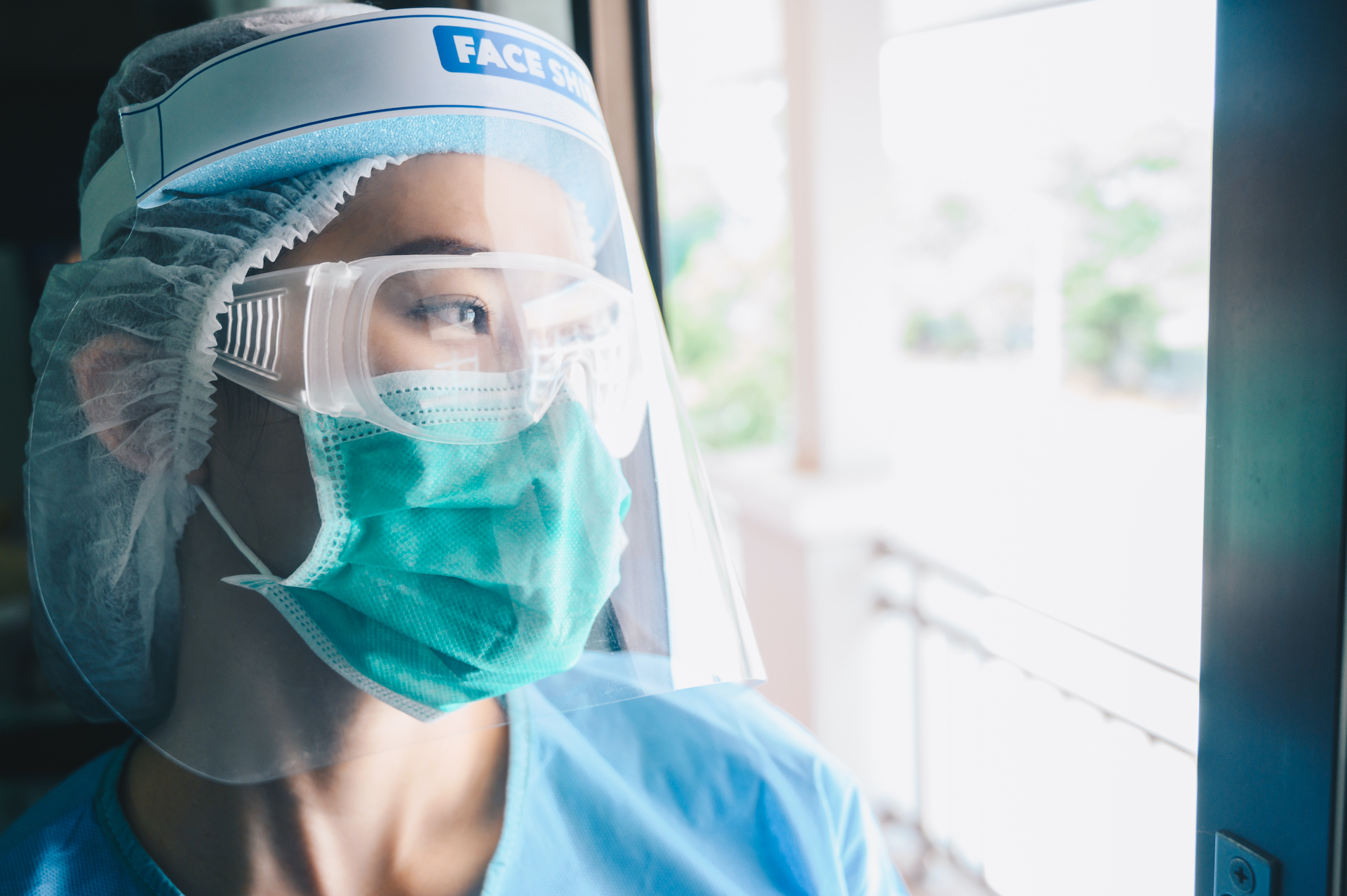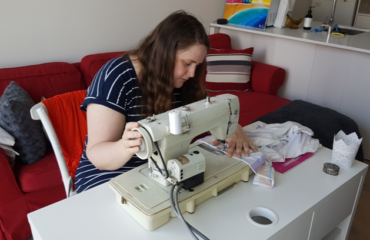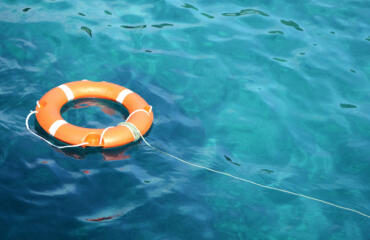Dying of COVID-19 is a lonely business. With families unable to visit hospitals to comfort loved ones, that task falls on nurses like 24-year-old Hannah Robison.
In the darkest days of Victoria’s pandemic last year, she would find herself keeping bedside vigil with patients for days, even weeks. With protocols inside the hospital to limit staff crossover and exposure there was little opportunity for respite.
“I never knew what would happen next, or when this would all finally be over,” says Robison.
With cases again spiralling and Victoria deep in another long haul lockdown, Robison has returned to the COVID wards, this time in the emergency department at the Royal Children’s Hospital. With the rise of the delta variant this year, more children have been infected with COVID-19.
“There’s been so many kids that have come in with Covid,” says Robison. Often, these children are admitted to hospital alone, as their parents are infected with COVID-19 and either in the ICU or isolating at home. “It’s such a mess.”
Through the worst of last year’s crisis, as family and friends hunkered down in their homes, Robinson was clocking 12 hour shifts at the Alfred Hospital. She was at the epicentre of Australia’s unfolding pandemic emergency, with Victoria recording more than 90% of the 905 deaths Australia-wide during that outbreak.

“I’m a new nurse and I’m going to make mistakes, but I don’t want my mistake to be that I get sick,” says Coco Hynes, a nursing graduate who started her first job at St Vincent’s hospital in Melbourne in February 2020.
Robison didn’t get sick, but like many of her hospital colleagues, she struggled mentally. Her social media feed was full of people staving off lockdown boredom with sourdough starters and puzzles. Meanwhile, Robison was wrestling with exhaustion and burnout.
There’s been much discussion about the mental health fallout of the pandemic for the wider community. Figures from the Black Dog Institute illustrate the scale of the mental health problems experienced; showing that 25% to 33% of Australians had high levels of anxiety and worry. The mental health challenges for frontline medical staff like Robison have also been profound.
“I really struggled with it,” says Robison. In her ward, four patients died from COVID-19 during Victoria’s second wave last year, including two who she cared for over weeks.
Glenn Taylor, CEO of the Nursing and Midwifery Health Program Victoria (NMHP), says the support healthcare workers require has “definitely ramped up” since pre-pandemic levels. NMHP provides counselling to nurses, midwives and students in those fields experiencing mental health problems, substance abuse or family violence.
Frontline medical personnel couldn’t clock off after a bad day and leave their distress behind. The demanding environment sometimes manifested in “an uptake of alcohol and drug use” for some, says Taylor. Others carried “a sense of guilt” or “a lot of fear and anxiety around picking it [COVID-19] up and sharing it with their friends and family”.
For some, it festered into ongoing medical problems. A study conducted by Australasian Psychiatry of 320 Australian healthcare workers showed that, in 2020, 21 per cent demonstrated moderate-to-severe symptoms of depression, 21 per cent for anxiety and 29 per cent for post-traumatic stress disorder (PTSD).
Compounding the psychological distress are the physical constraints hospital workers have had to work inside during the pandemic. Healthcare workers in contact with COVID patients are required to wear a full armour of personal protective equipment (PPE); including N95 masks, face shields, gowns and gloves, for hours on end.
“The PPE was a really big stress because you felt so sick in it 24/7,” says Robison.
For new nurses in particular, being thrust into such demanding work was challenging while they were still learning on the job. Robison had accrued a year of experience working in a major hospital pre-pandemic, but over the past 18 months graduate nurses have been thrust straight into the COVID crisis on the wards. The fallout, says Taylor, is “a sense of disconnection” for new nurses finding their way, as “they don’t really know anything different.”
“I’m a new nurse and I’m going to make mistakes, but I don’t want my mistake to be that I get sick,” says Coco Hynes, a nursing graduate who started her first job at St Vincent’s hospital in Melbourne in February 2020.
The highly stressful reality of life inside the COVID wards compared to the mundanity of “working from home” for the wider population exacerbates the problems nurses are facing. “I found it hard to relate to everyone else because I would go to work and someone would die, and then I would get home and everyone was complaining about COVID,” says Robison.
“People got to sit at home and get paid anyway by the government, while I was at work not getting a pay rise or anything.”
Even in non-COVID times, the demanding hours and confronting realities of hospital shifts can take a toll on nurses’ mental health. Some nursing degrees provide counselling services for students to discuss their anxieties about entering the workforce. However the high-pressure environment, exacerbated by the pandemic, can be difficult to practically prepare for. “You’re never really going to know until you’re in the midst of it all,” says Taylor.
At the Australian Catholic University Ballarat, students are eligible for free counselling sessions and there is time to speak about anything concerning them at the end of every class, says Paris Speirs, a student in her third year of a Bachelor of Nursing/Bachelor of Paramedicine.
For Speirs, the assistance and recognition around mental health she receives at university has eased her anxieties about entering such a high-stress work environment. “The support for my mental health that I get in nursing is the reason I’m not scared to do this as my career.”
The mental health impacts for healthcare workers that stemmed from the hospital environment during the pandemic are expected to leave residual effects.
“Our response to trauma does have an impact on us,” says Taylor. As the pandemic rolls on, medical personnel are struggling to maintain momentum. Taylor says, “our workforce has diminished because of this, so there are fewer nurses and midwives doing the work, but the work’s not stopping.”




